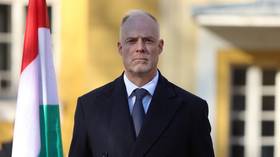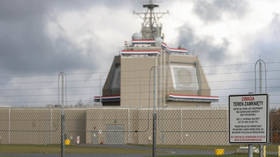US braces allies for higher Ukraine costs – WaPo

Washington is reportedly bracing its European allies for “worst-case scenarios” in Ukraine, suggesting that Kiev may need its donors to pony up an additional $2 billion a month as Russian attacks on key infrastructure cripple the former Soviet republic’s economy.
The cost warning reflects fears that Ukraine’s economy may contract by an additional 5-9% in 2023 after taking a 33% hit this year, the Washington Post reported on Thursday. There are also concerns that if Moscow’s attacks intensify, a surge in refugees fleeing the country could crash Ukraine’s currency, leaving the government in a “doomsday scenario” in which it can’t pay for critical imports or meet its foreign debt obligations.
“What do you do when you can’t heat your house, you can’t run your shops, factories or plants, and your economy is not working?” Oleg Ustenko, an economic adviser to President Vladimir Zelensky, told the Post. “We are going to be requiring more financial assistance, and [Russian President Vladimir] Putin is doing this to destroy unity among allies.”
Europe is already suffering an energy crisis and economic turmoil amid the Russia-Ukraine conflict. The US-led sanctions campaign to punish and isolate Moscow has sparked soaring inflation and energy shortages. Germany, for instance, has spent nearly $500 billion to “keep the lights on” since the conflict began in February, cutting off its imports of Russian energy, Reuters reported on Thursday.
Zelensky’s government expected to need at least $55 billion in foreign financial aid next year to meet basic expenses, the WaPo reported. An extra $2 billion monthly would push that total to $79 billion. To put that in perspective, Ukraine’s entire state budget was less than $48 billion in 2021.
So far, the US and the European Union have pledged to send more than $30 billion to Ukraine next year, not counting the massive military aid that they’re also providing. Beyond the additional government funding that Kiev will seek, advisers to Zelensky have weighed asking Western leaders to finance direct cash payments to Ukrainian citizens, at a cost of $12 billion, the Post said.
Jacob Kirkegaard, a senior fellow at the German Marshall Fund think tank in Washington, argued that the West needs to give more money to keep Zelensky’s government financially afloat. However, he added, “I don’t know if the will is there.”













